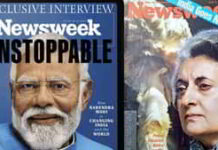 TOPIC – Time to breathe
TOPIC – Time to breathe
“Conviction in the George Floyd case is a victory for pushback and due process. There are lessons closer home”
In the opening statement in the trial of Derek Chauvin, the prosecution played the footage of the accused kneeling on George Floyd until he died, pleading “I can’t breathe”. Prosecutor Jerry Blackwell asked the jurors to “believe your eyes”. In the killing of an unarmed Black man by a White Minneapolis police officer, as his colleagues looked on, injustice — and even the systemic racism in the US police system — was witnessed by the world. On April 21, less than a year after Floyd was murdered, a Minnesota court pronounced Chauvin guilty of murder and manslaughter. Justice has been done — and seen to be done. As US President Joe Biden remarked in an address to the country after the verdict, “it is not enough”. It is, however, important to acknowledge that in this case, the system did work to a large extent, egged on in no small part by a robust civil society. Floyd’s death sparked protests across the US and beyond and placed the issue of police brutality and systemic racism centre-stage. It moved the conversation on racially motivated violence beyond the “few bad apples” excuse, often given by police departments and governments. Immediately after Floyd’s murder, four police officers were removed from duty and the US Justice Department has announced a broader investigation into the practices of the Minneapolis police’s operations. Political debate, civil society action, due process — the pillars of the rule of law and democracy — ensured swift justice in this case of police brutality. While it is no one’s case that a single court verdict can solve the vexed, tangled web of impunity and injustice that racism has engendered, it can certainly mark a beginning.There are lessons for the Indian police forces and the country’s justice system at large from the Floyd trial and conviction. Like African-Americans and other minorities in the US, the proportion of Muslim, Dalit and Adivasi undertrials in Indian prisons far exceeds their percentage in the population. Custodial violence is rampant, as the death of a father-son in police custody in Tamil Nadu last year, serves to remind us. Justice, in general, and particularly in the case of custodial deaths, is rare or so severely delayed — in the Hashimpura massacre case, it took 31 years to get a conviction from a higher court — that its impact is severely undermined. It is due process and equality before the law, whether you are a policeman or an ordinary citizen, that prevent democracies from plunging into elected autocracies. That’s the lesson to draw from the conviction of Chauvin.

















